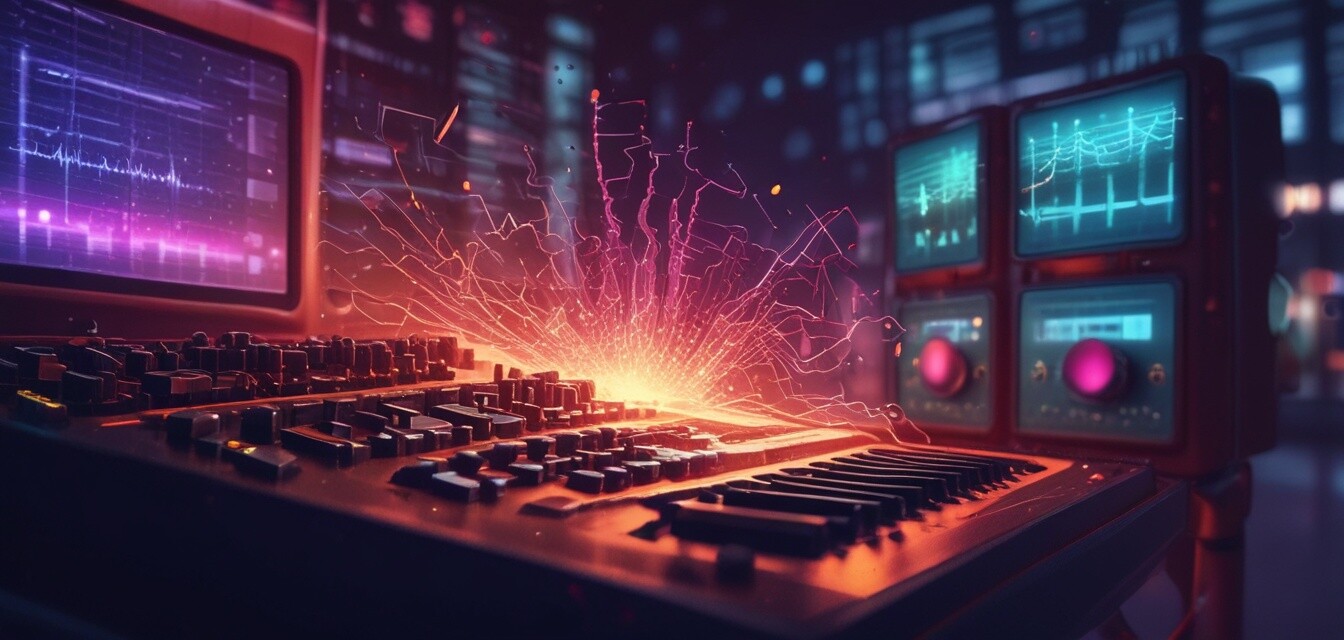
How Artificial Intelligence is Shaping Music Production
Key Takeaways
- AI is transforming how music is composed, produced, and mixed.
- Technologies like machine learning and deep learning are at the forefront.
- AI tools offer new creative possibilities for musicians and producers.
- Challenges include authenticity and the role of human creativity.
- The future of audio quality may be enhanced by AI advancements.
The landscape of music production is undergoing significant shifts with the advent of Artificial Intelligence (AI). Musicians and producers are beginning to harness AI technology to enhance creativity, improve audio quality, and streamline the production process. In this article, we will explore how AI is shaping music production, the implications for audio quality, and what it means for the future of the music industry.
The Role of AI in Music Production
AI technologies are increasingly being implemented in various stages of music production. Here are some key areas where AI is making an impact:
- Composition: AI has the ability to create unique melodies and harmonies by analyzing patterns in existing music.
- Mixing: AI-powered tools can optimize sound mixing by learning from past successful mixes.
- Sound Design: AI can assist sound designers in generating new sounds or manipulating existing sounds in innovative ways.
- Music Recommendation: AI algorithms analyze user data to suggest music that listeners might enjoy, improving distribution and reach.
AI Tools Revolutionizing Music Production
Many AI tools have emerged that provide valuable support to musicians. Let's take a closer look at some of these innovative tools:
| AI Tool | Functionality | Benefits |
|---|---|---|
| Amper Music | AI music composition | Creates royalty-free music quickly and efficiently. |
| AIVA | Composing music inventories | Uses deep learning to compose music tailored to specific emotions. |
| LANDR | Automated mastering | Delivers high-quality mastering within minutes. |
| Sonible | Mixing assistance | Enhances mixing quality, making adjustments based on input tracks. |
Implications for Audio Quality
One of the most exciting aspects of AI in music production is its potential to enhance audio quality. Here’s how:
- Precision: AI can analyze audio tracks more accurately than human ears.
- Dynamic Range: AI tools can maintain and enhance the dynamic range in mastered tracks.
- Personalization: Customization according to listener preferences can improve overall listening experiences.
Challenges and Considerations
While the advantages of AI in music production are significant, it is important to recognize the challenges that arise:
- Authenticity: Concerns have been raised about the authenticity of music created by machines.
- Human Touch: The unique qualities that human musicians bring to music may be compromised.
- Access and Equity: The availability of advanced technology can create disparities among musicians.
The Future of AI in Music
As AI technology continues to evolve, its influence on the music industry will likely deepen. Future implications include:
- Increased collaboration between human musicians and AI systems.
- Continued development of new AI tools that integrate seamlessly into the workflow.
- The potential for AI to revolutionize live performances with real-time processing.
Conclusion
The integration of AI into music production is reshaping the landscape in profound ways. From enhancing audio quality to providing tools for innovative compositions, AI is changing how we create and consume music. While challenges remain regarding the authenticity and human touch, the future is bright for artists who adapt to this new era of music production.
Tips for Embracing AI in Music Production
- Experiment with different AI tools to find what fits your workflow.
- Stay updated on technological advancements in the music industry.
- Consider how AI enhancements can complement your unique sound.
- Remain critical of the balance between machine assistance and human creativity.
Pros
- Enhanced production efficiency
- Access to innovative composition techniques
- Improved audio quality
Cons
- Concerns about the authenticity of AI-generated music
- Potential loss of human creativity
- Accessibility issues for some musicians
For those interested in more insights about the evolving speaker landscape, feel free to check our latest updates on News and Trends or explore our Bluetooth Speakers category for great sound options!